As benefiters of Indian labor in a globalized economy, should we be concerned with how our actions affect violence against women in India?
Absent from the discussions concerning the recent wave of violence against women in India is the role that globalization is playing. Globalization and its attendant commercial values and material expectations are transforming social relations in India and, in doing so, stoke the brutalization of women.
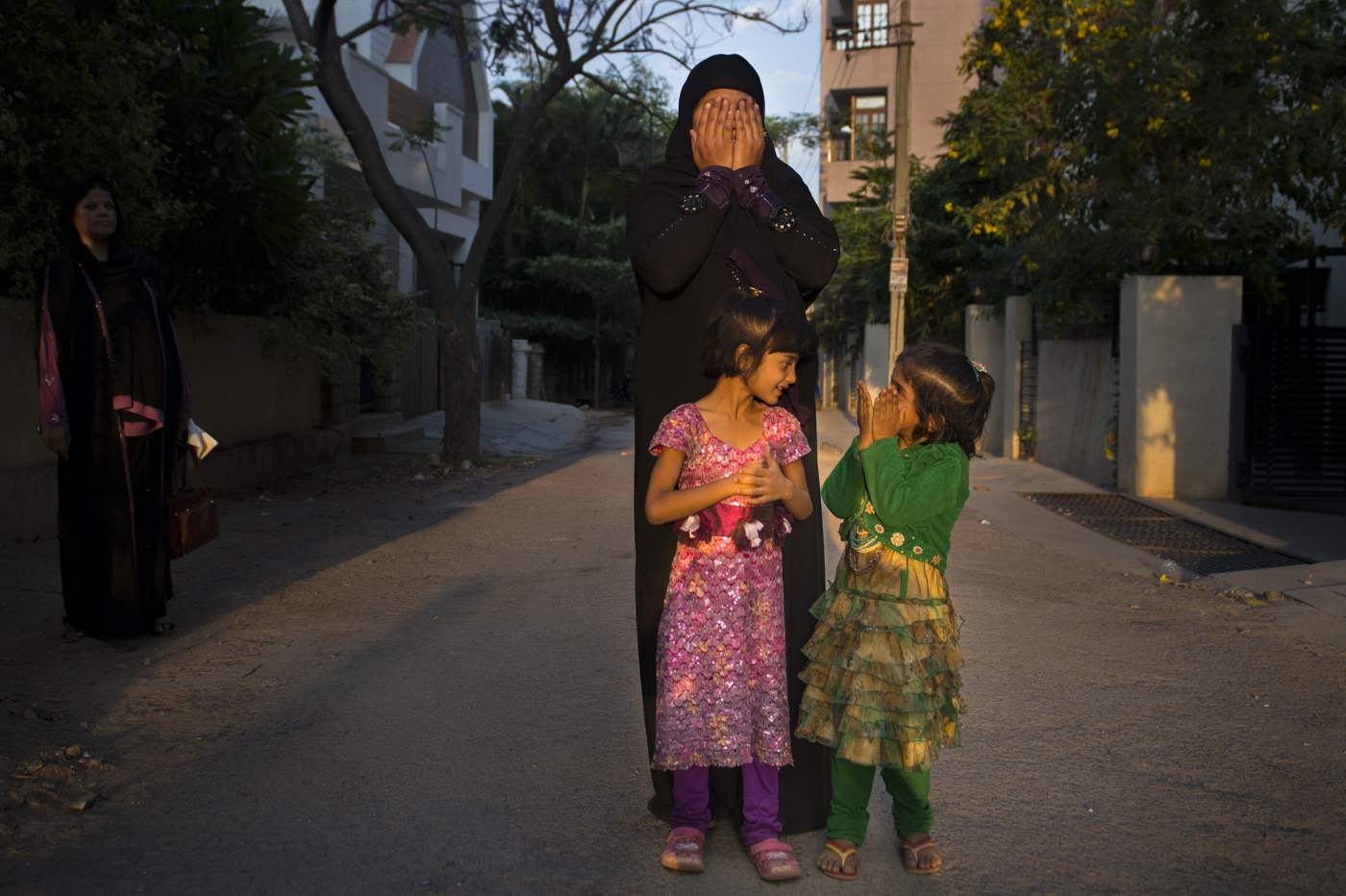
Tabassum (25) and her mother (L) paid a sizable dowry of cash, jewelry, and 2 suits at time of marriage. Despite the dowry her husband and his family repeatedly abused her for continuing dowry payments and for giving birth only to girls. Her husband re-married and had a third daughter.
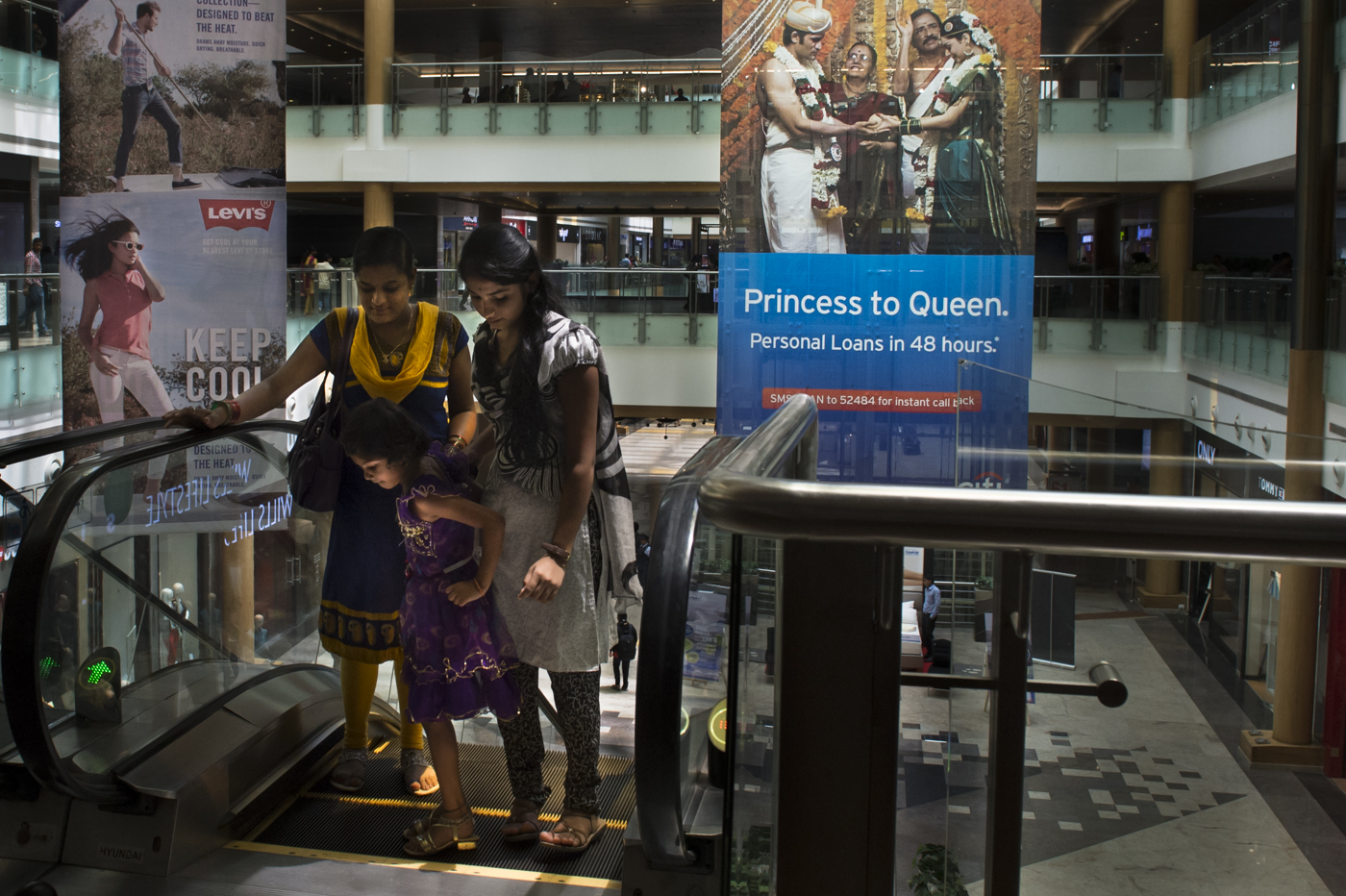
Lenders take advantage of the pressure put on the bride’s family to have opulent wedding ceremonies and large dowry payments by providing personal loans at exorbitant interest rates that destroy families.
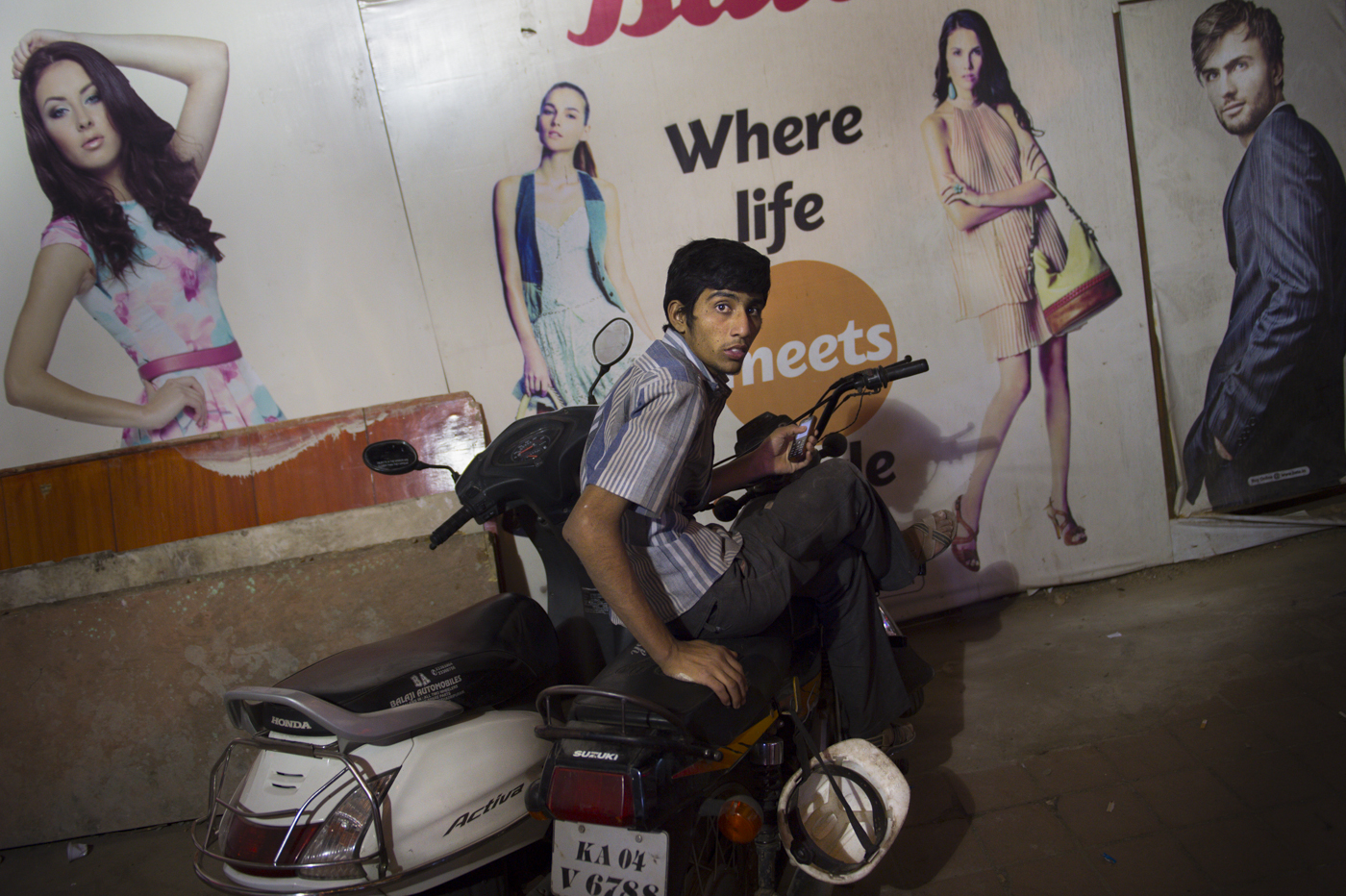
Over the past 10 years, 91 million Indians, or roughly the combined populations of the United Kingdom and Australia, have migrated from the countryside to its cities. This mass urban migration has flooded the low wage job market, leaving many Indian men without the means to support their families.
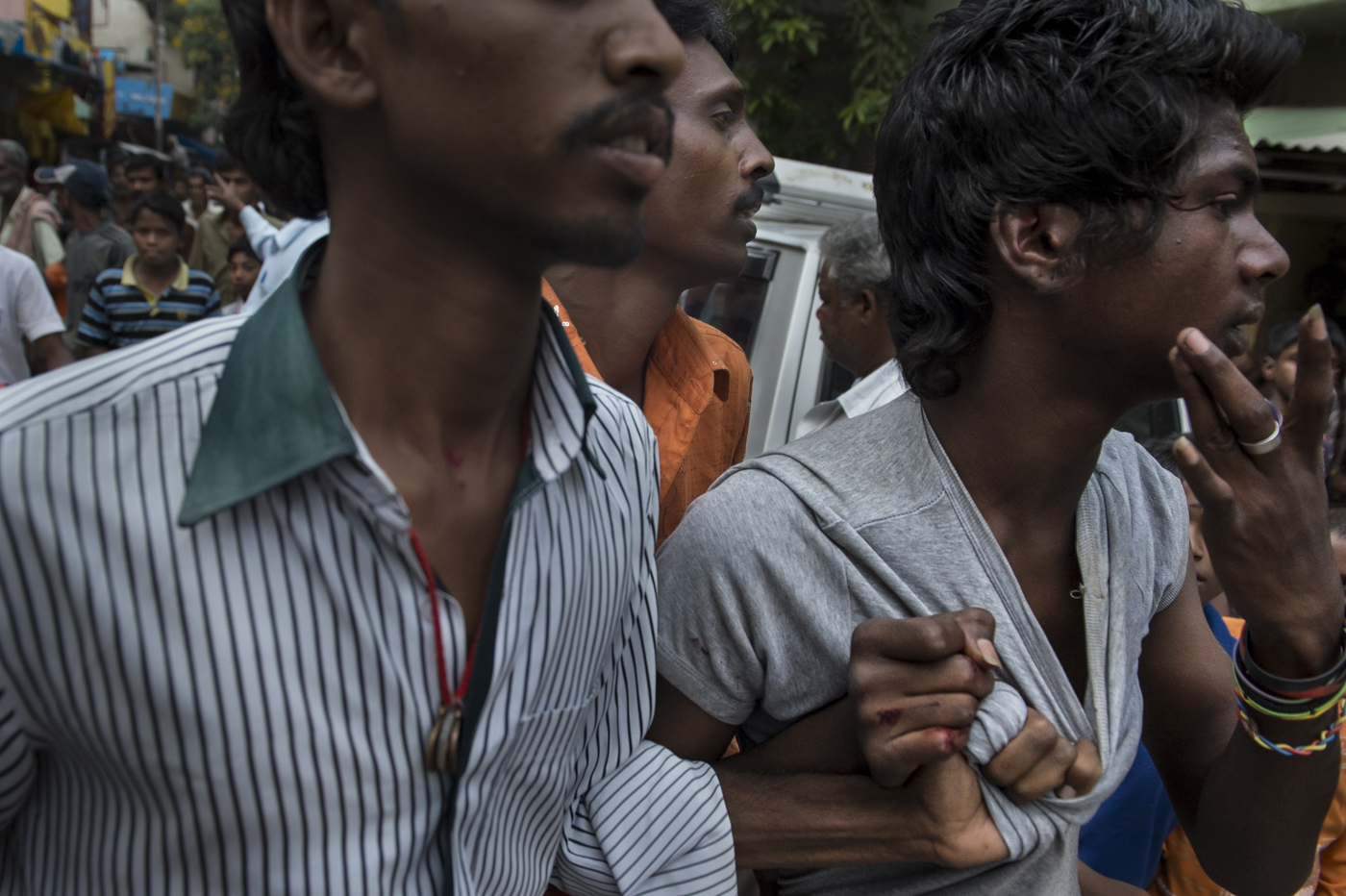
Two men drag a third man away from a dowry related fight in the Dr. Ambedkar Nagar neighborhood of Bangalore, India. As materialism grows in a globalized indian society, so too do the dowry demands. Dowry is no longer confined to a single transaction around the marriage period, but an ongoing demand on the wife and her family, one that is frequently manifested by sustained long-term harassment.
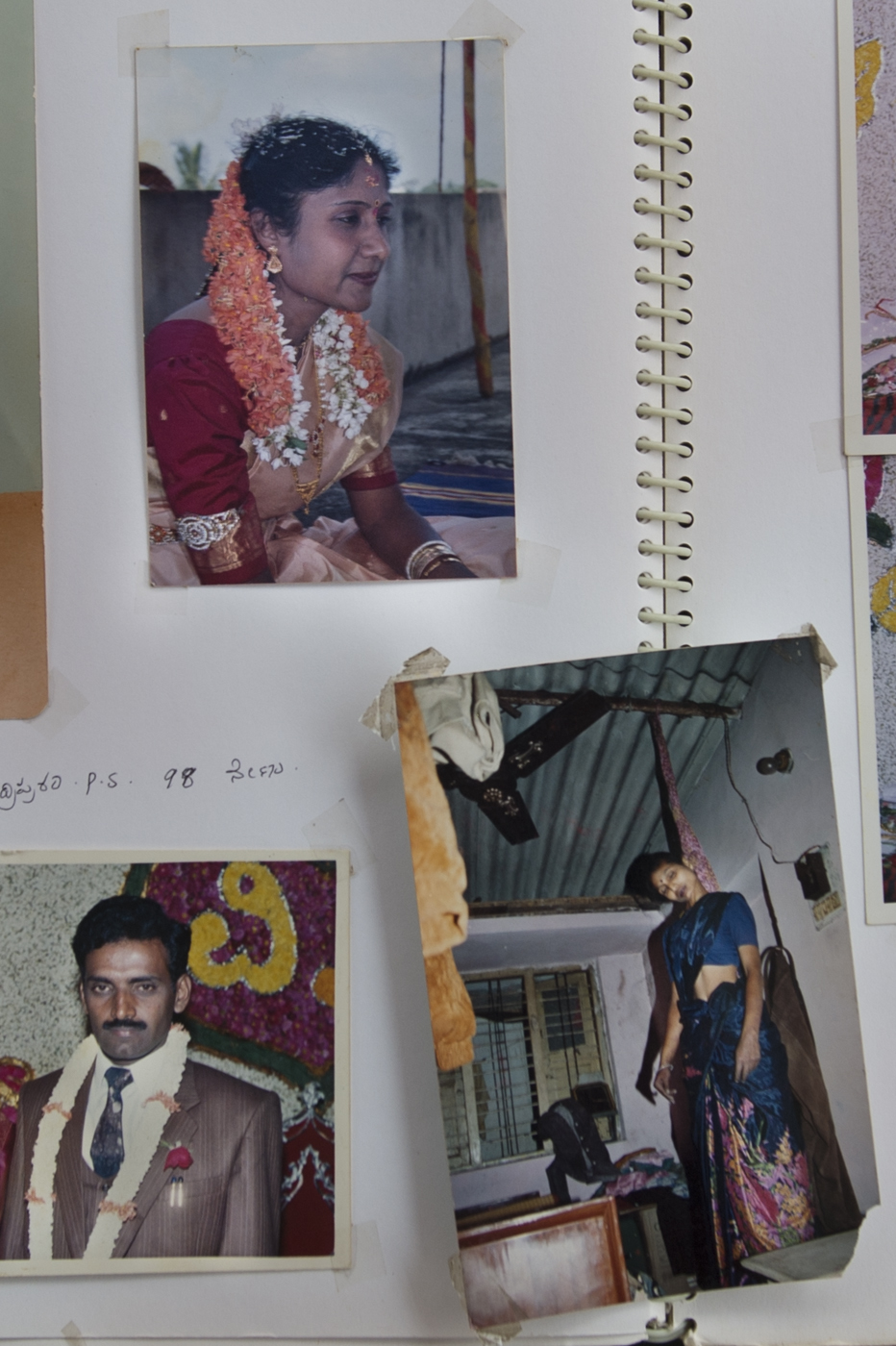
Photos taken as evidence from case files of Donna Fernandes a founding member of Vimochana. Vimochana is an organization that has fought violence against women in Bangalore, India for the past 35 years. Donna Fernandes explains that “with globalization and privatization, everything began to be seen through the prism of money and market. Marriage today has become a business transaction, a complete replacement of human values by market values.”
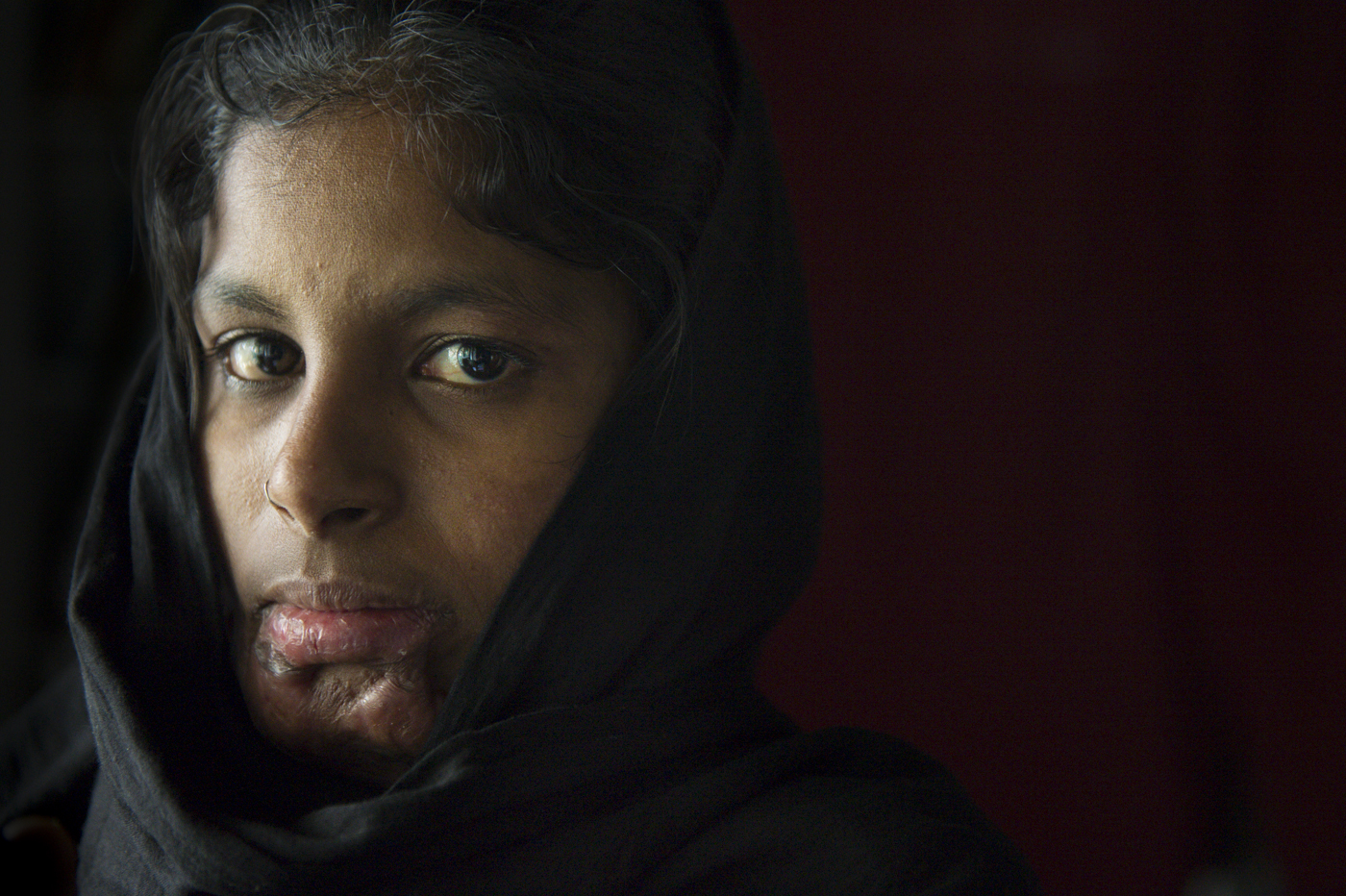
“I never thought I would see 2014, I am so happy I have another chance”. Deepa’s (17) marriage began by being abducted and raped and ended in a hospital bed after she was set alight “accidentally” by her husband. Her mother-in-law had doused her in kerosene during an argument about dowry.
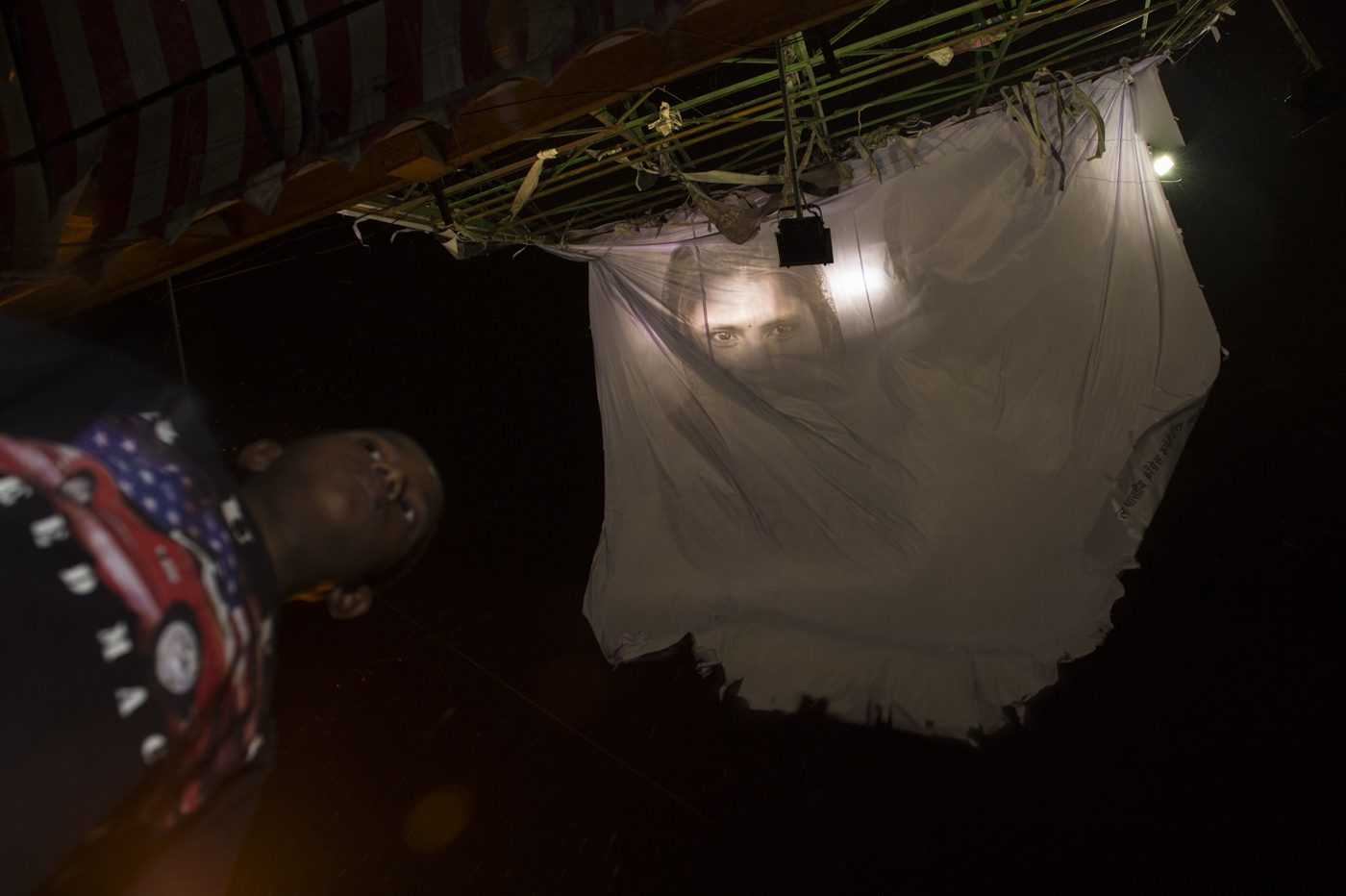
An election campaign poster for Rahul Gandhi showing him with a Dalit caste woman becomes untethered in a storm in the heart of Bangalore, India. Despite an official reporting of one dowry-related death per hour, such deaths remain widely under-reported.
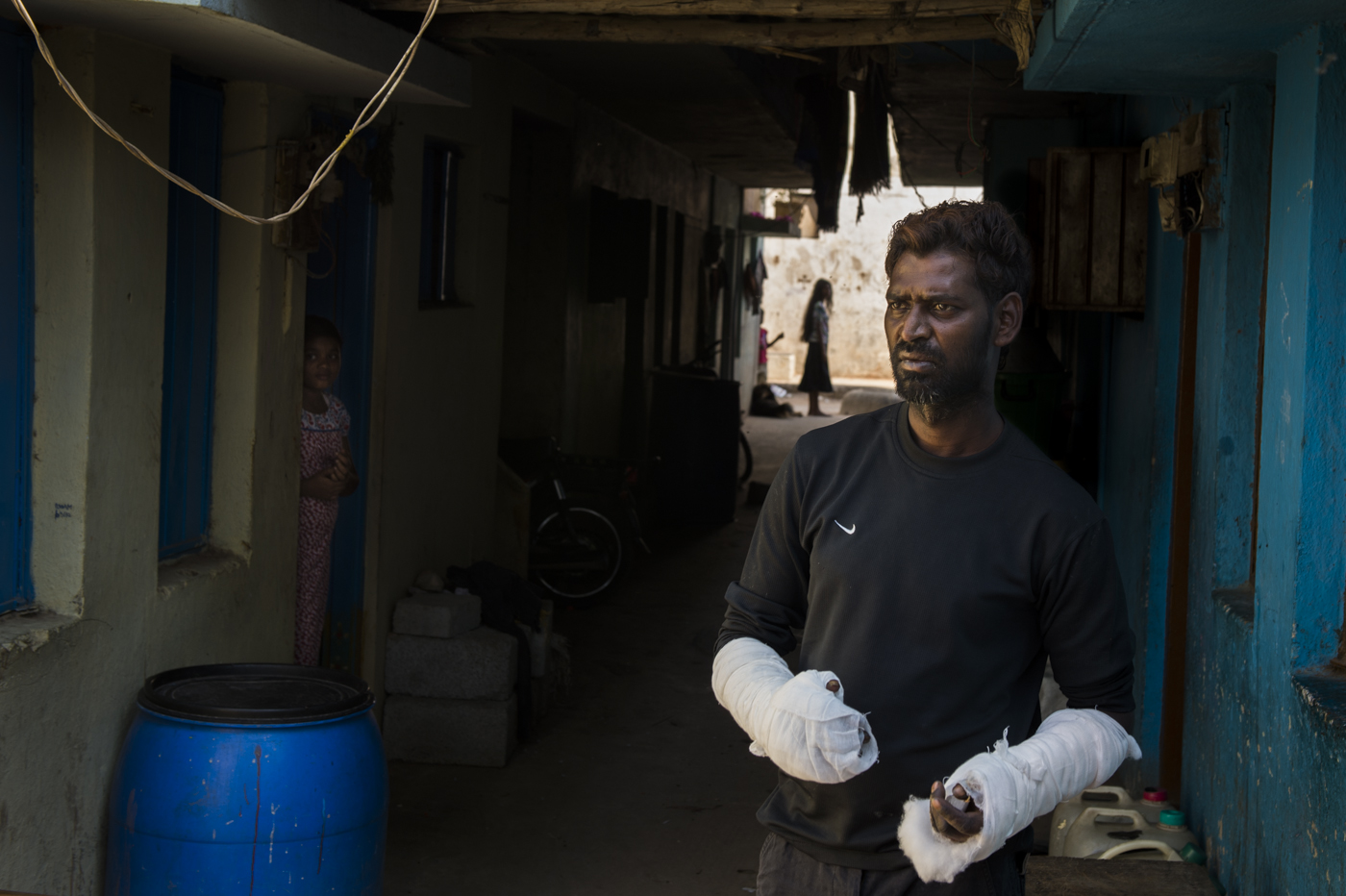
According to Gondo Raj (35), he severely burned his hands while trying to save his wife Soya, mother of 3, after she lit herself on fire. Soya’s family, accuses Gondo of murdering her.
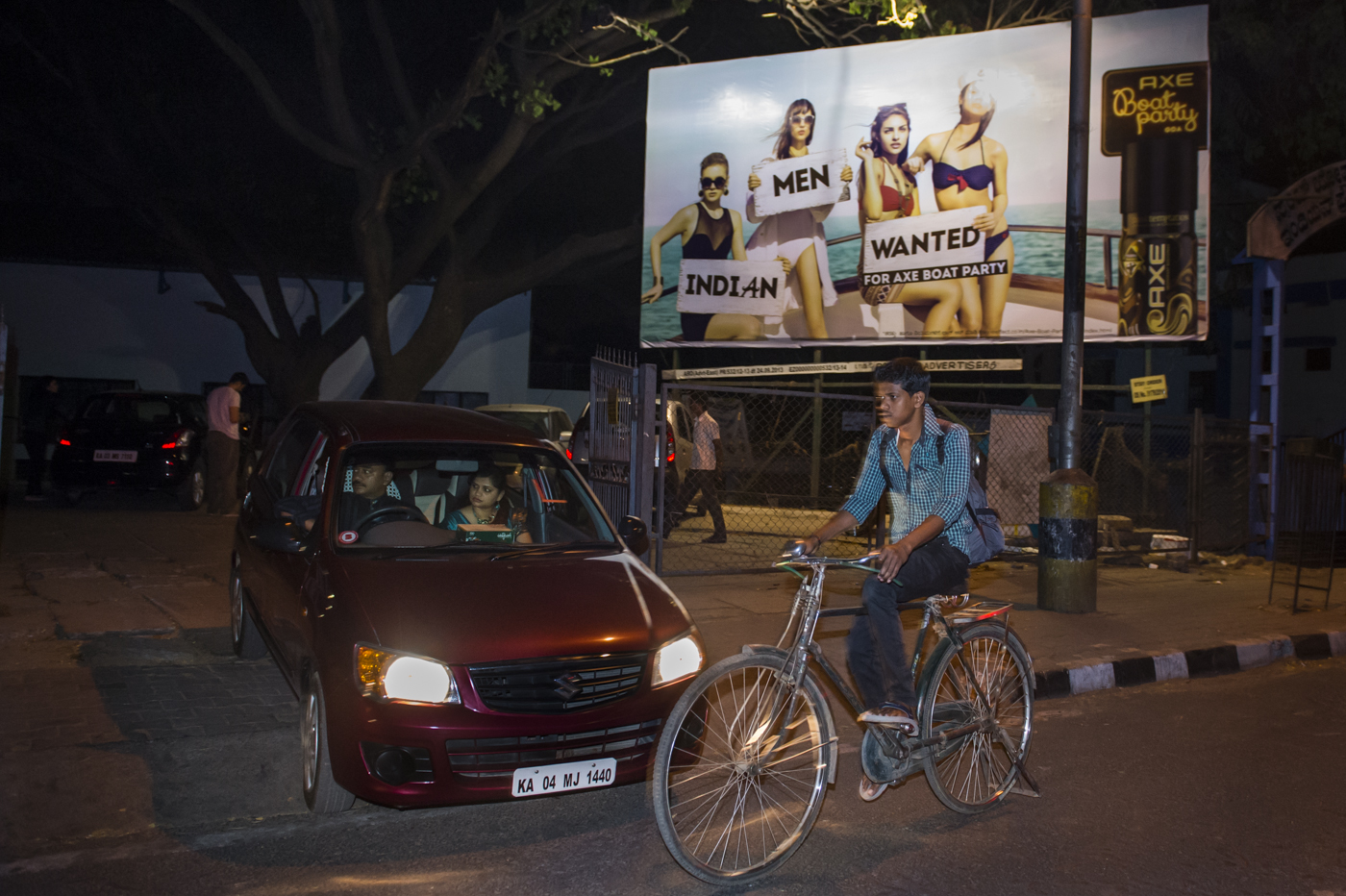
As India’s wealth grows exponentially, so too does income inequality. Heavily sexualized advertisements boast a lifestyle that very few can access. This advertised deodorant, Axe, costs roughly the equivalent of 2 days of wages for Indian day laborers.
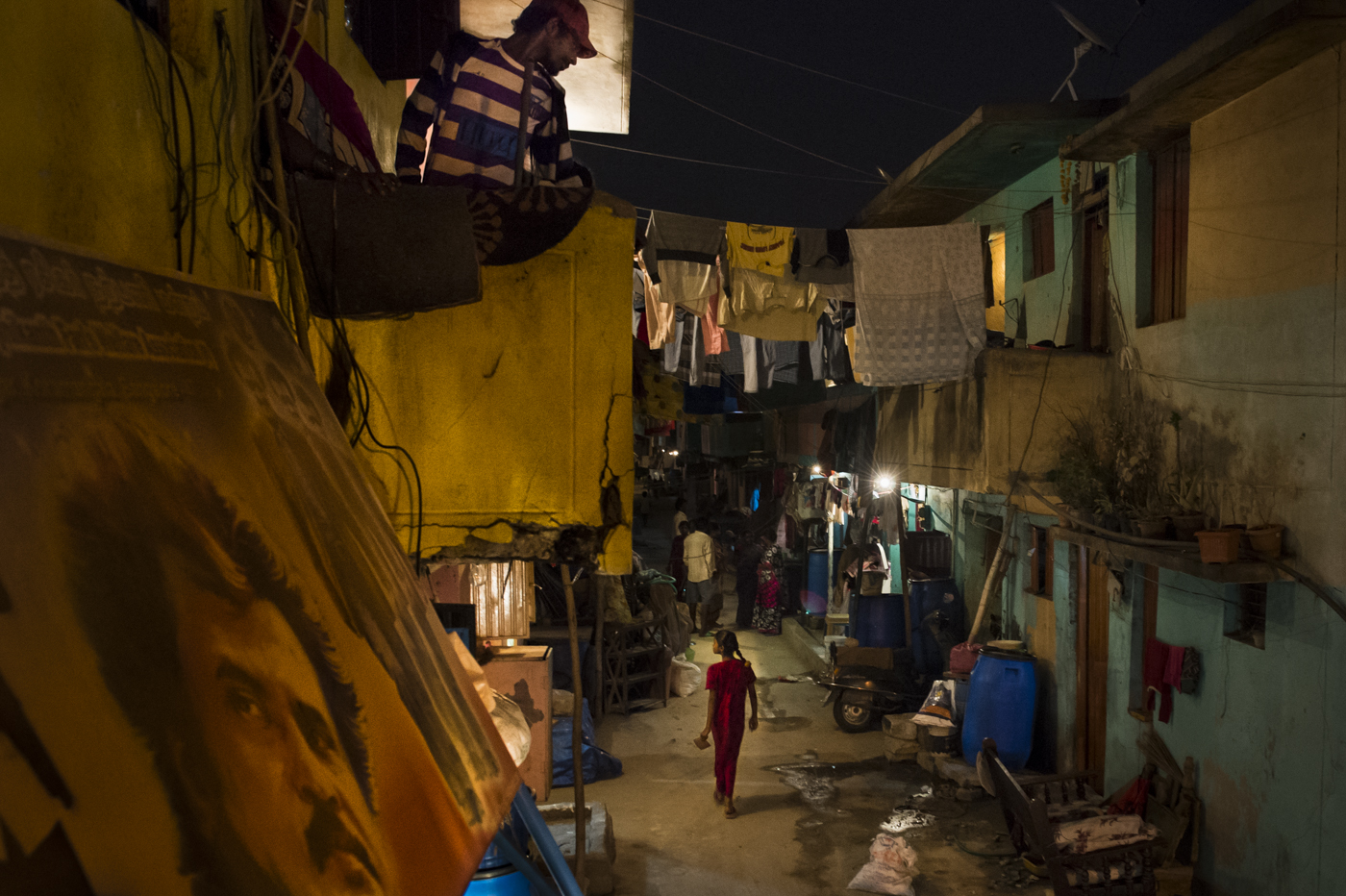
Urban populations are swelling while police struggle with meager budgets and rampant corruption, leaving young girls vulnerable as they walk the streets.
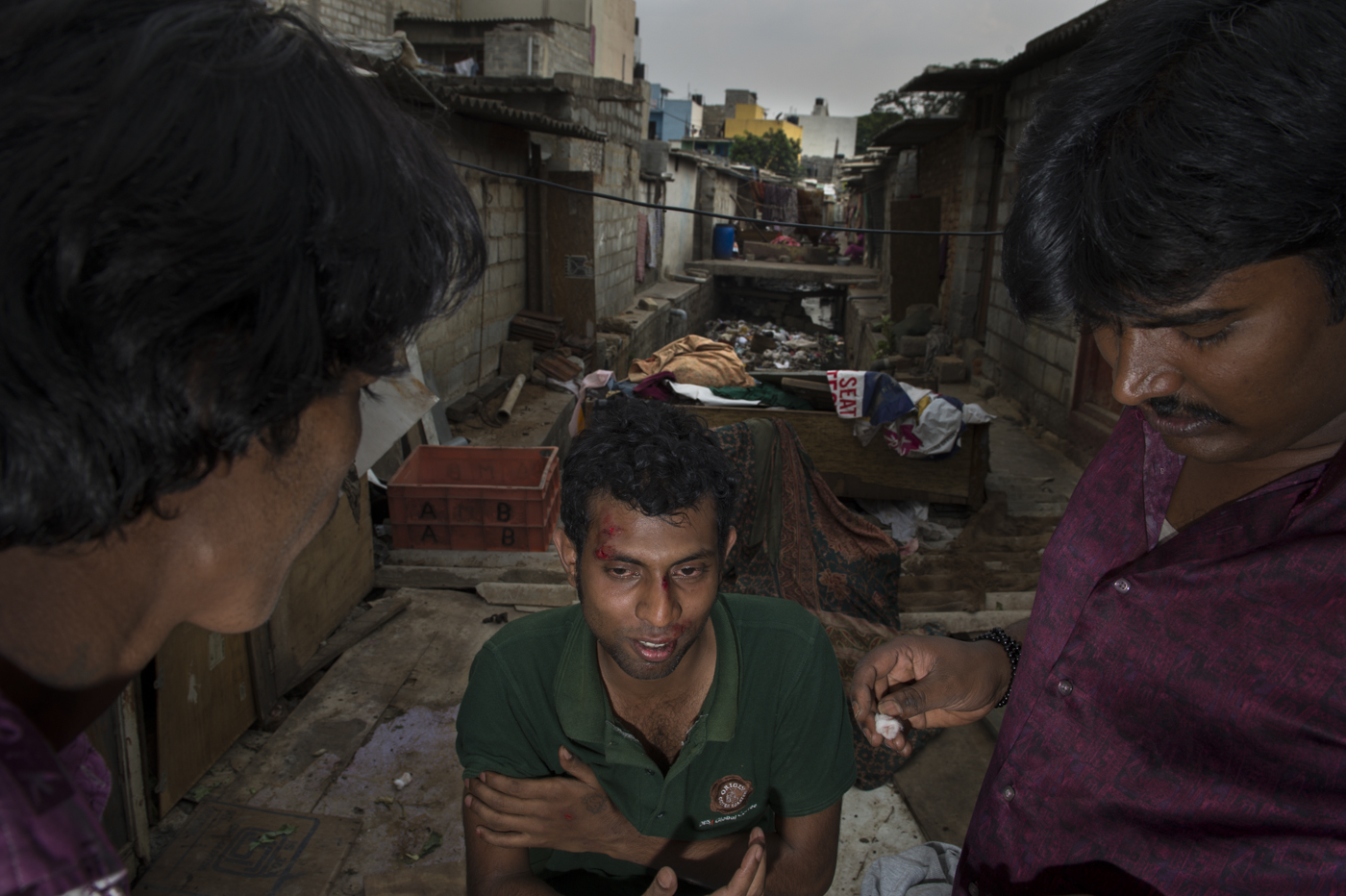
Maya stands with friends outside his home over open sewage. Men from struggling rural communities pour into Indian cities alone looking for wages with which to support their families back home. The rapists from the infamous deadly bus gang rape in Delhi of December 2012 were among this migrant population forced to inhabit slums where brutalizing conditions are the norm.
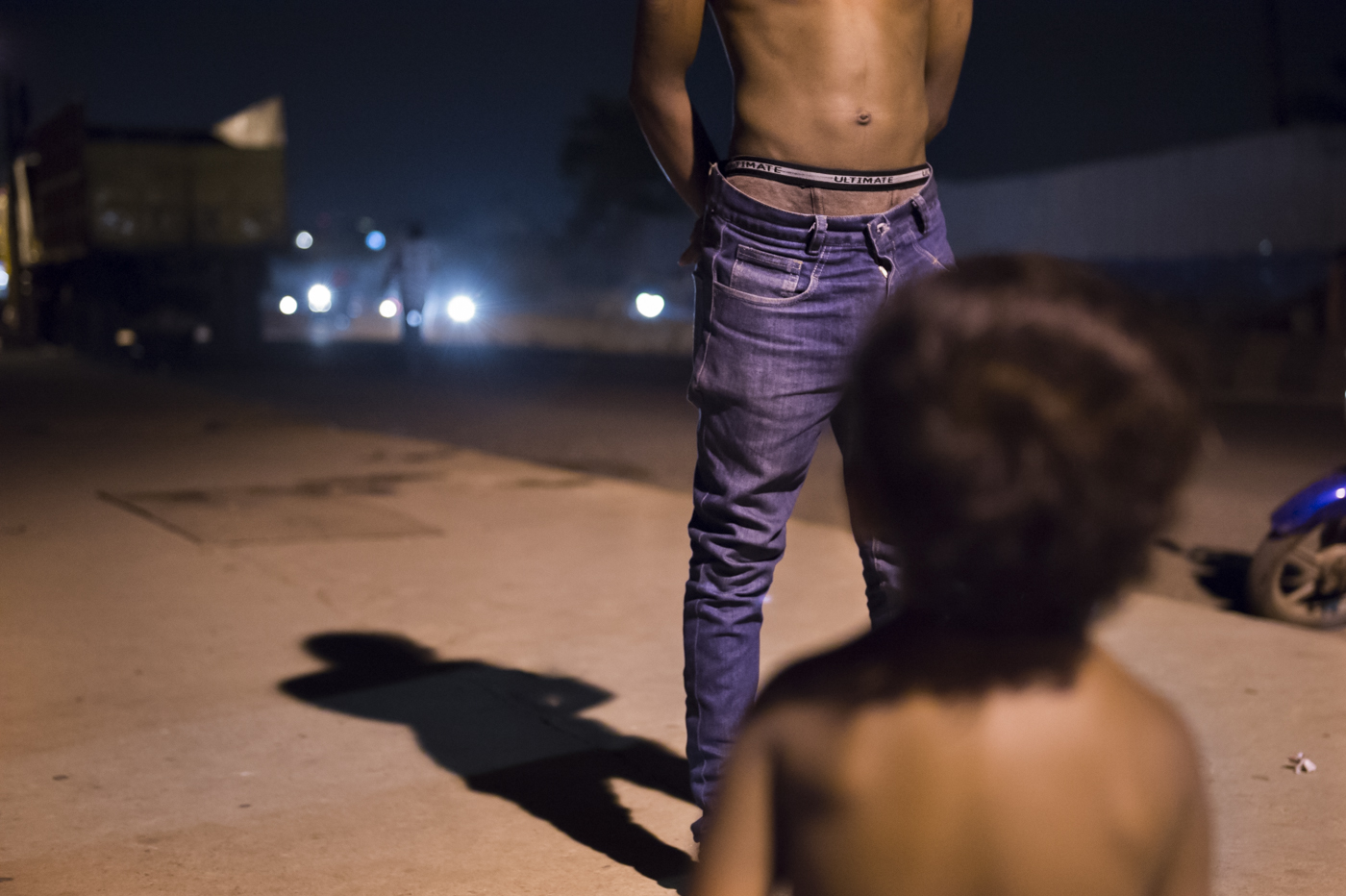
Arun Das (17) and his family have lived in a tent on this sidewalk since January 24th 2013. His family’s home was destroyed to make room for a large mall.
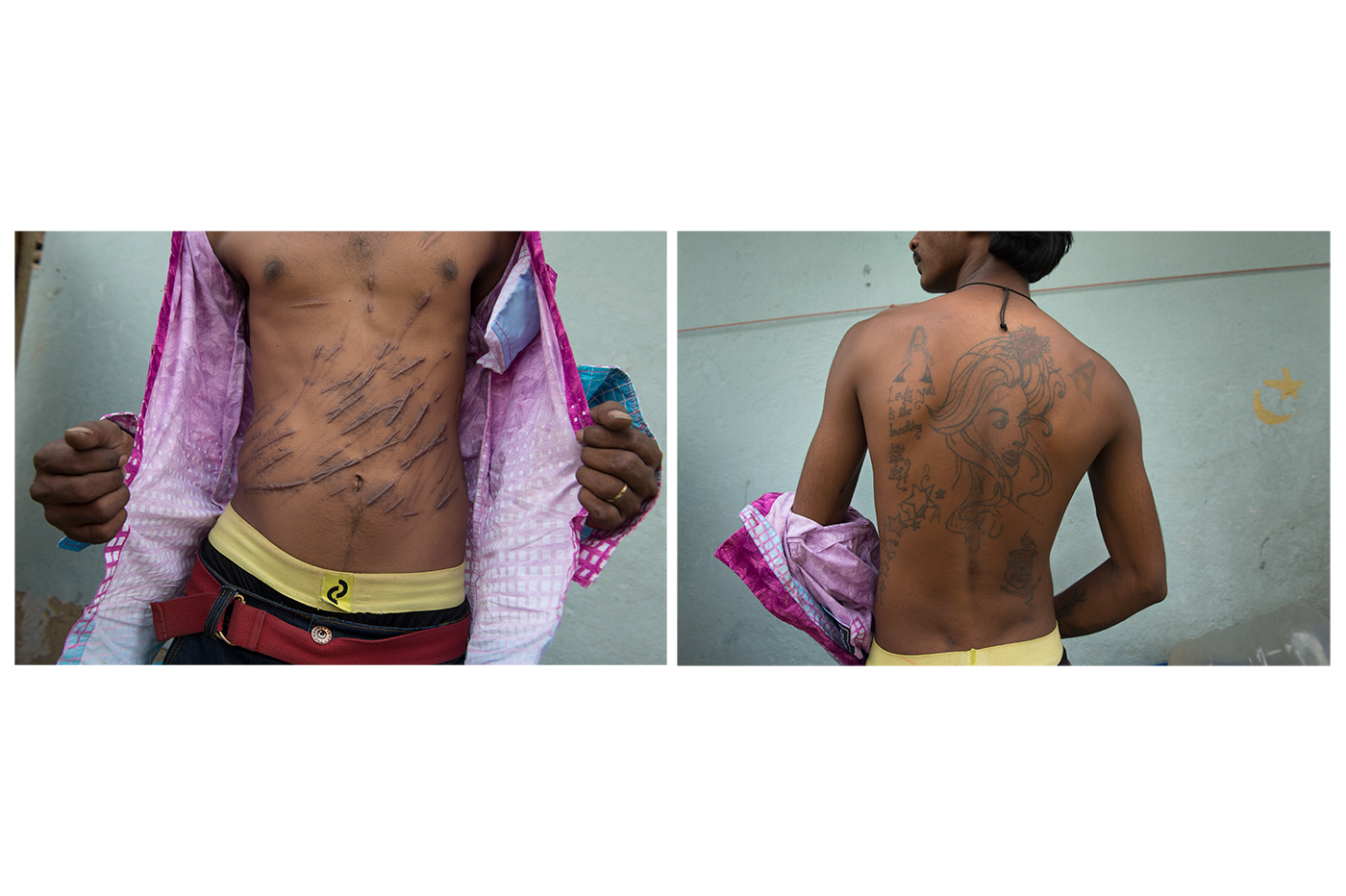
Maya, when drunk, fights both physically and verbally with his mother and girlfriend. When he awakens, he cuts himself to relieve the guilt. His girlfriend can be seen tattooed on his back, accompanied by the quote “Lovig you is like breathing. How can I stop?”
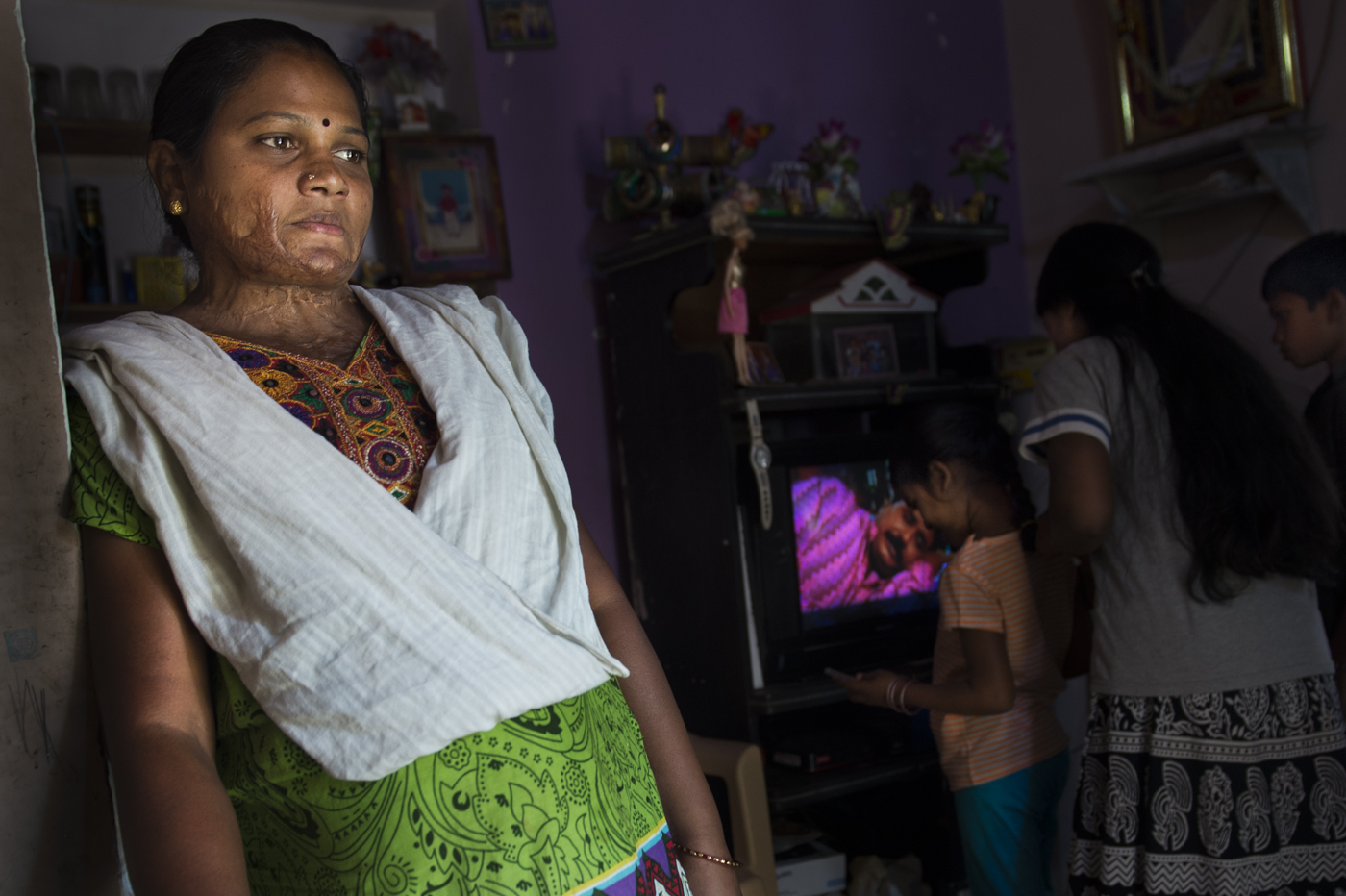
Due to the social stigmas associated with divorce, women have few choices to act on the misery caused by their treatment by their husband. Some women use self- immolation to voice their misery. Such is case with 29 year old Mangay, who accidentally self-immolated in a plea for her husband to stop drinking away the family income.
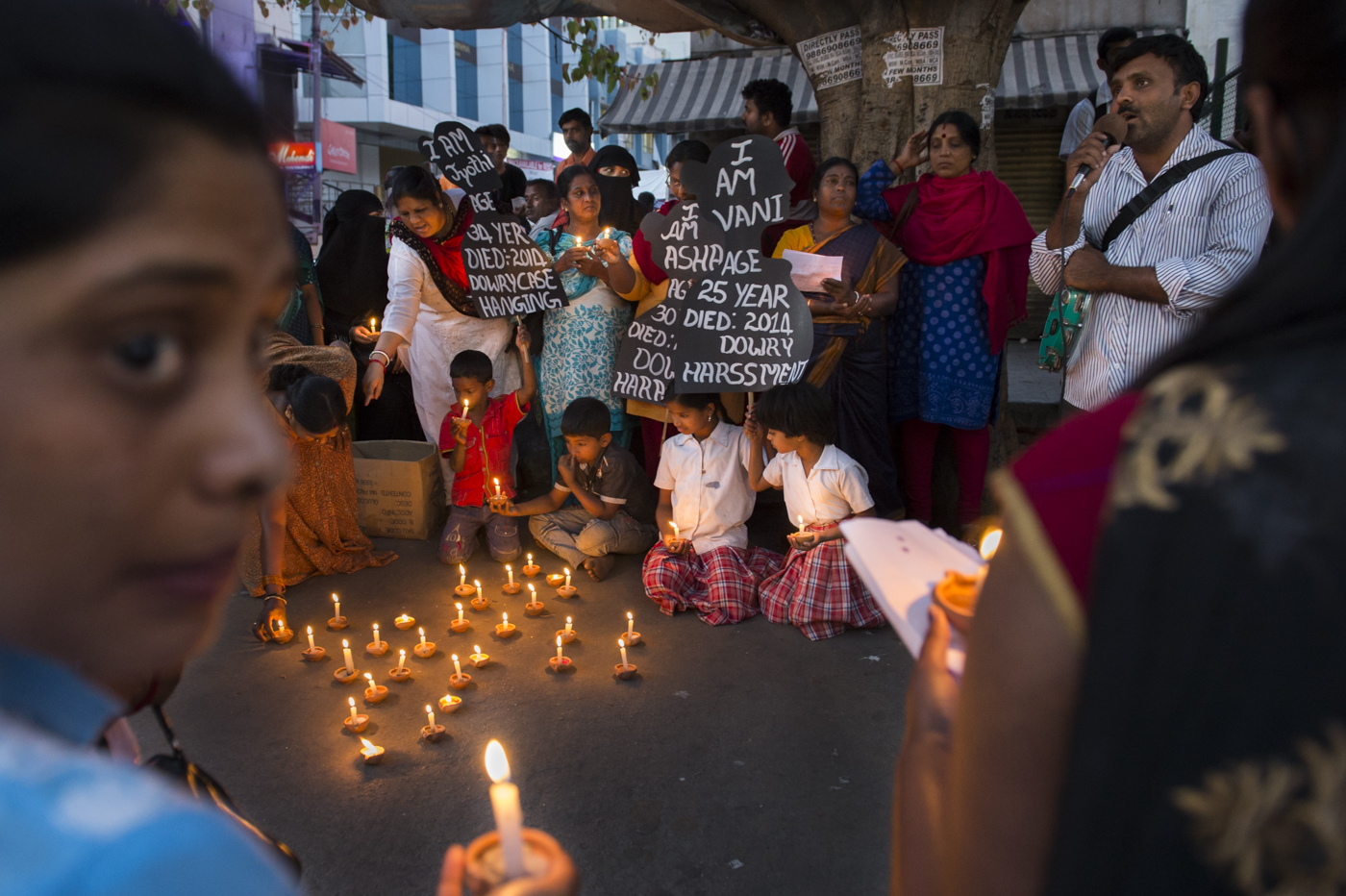
Members of Vimochana bring their campaign in opposition to violence against women to a busy intersection of Bangalore, India.
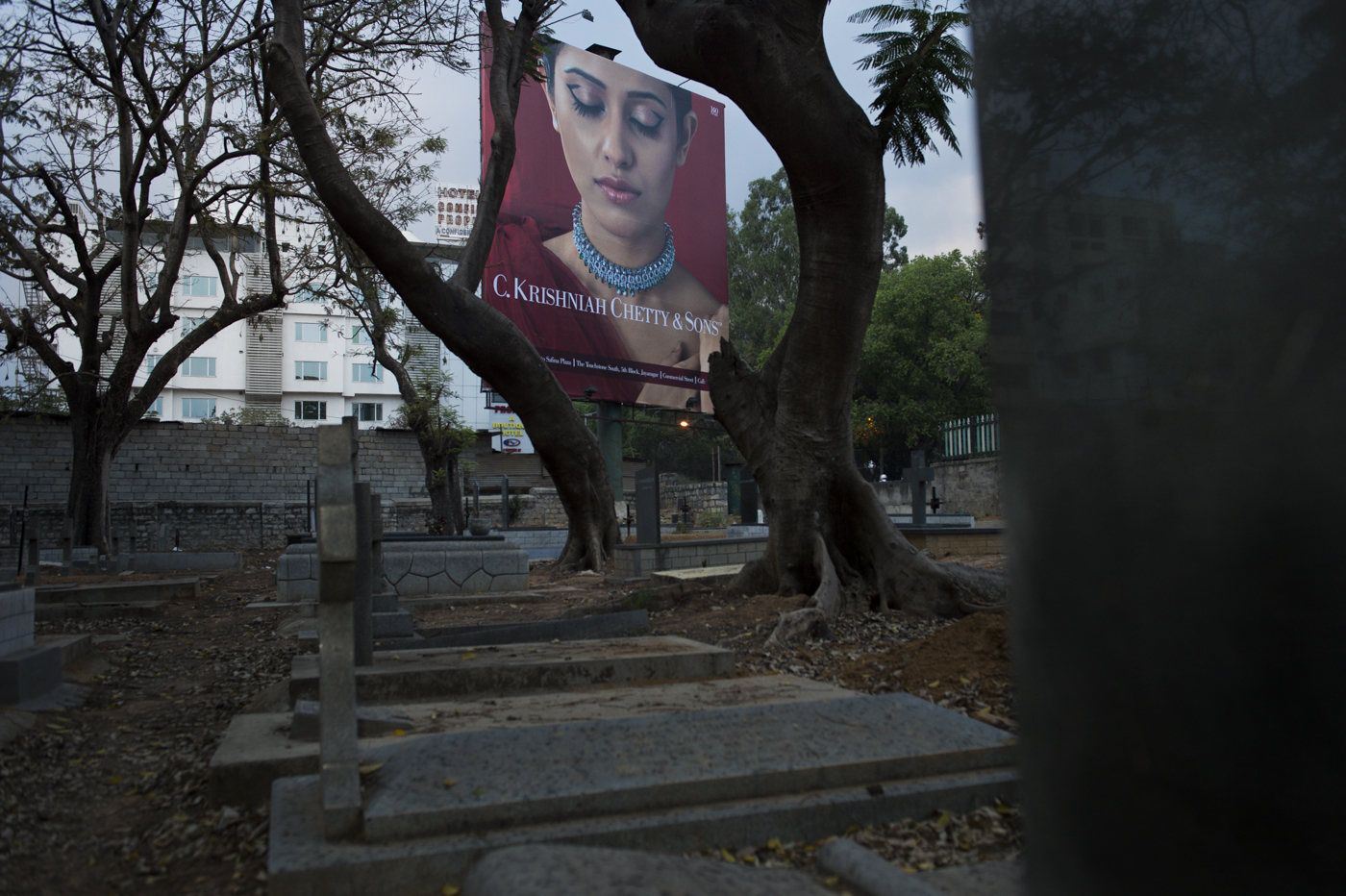
Bangalore, India.














